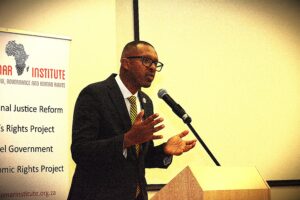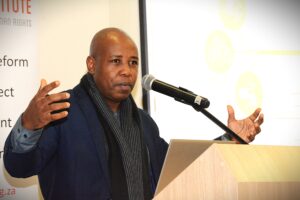By Ziaad Suleman, CEO of Cassava Technologies, South Africa and Botswana
As a developing continent with enormous growth potential, Africa stands at a crossroads. On the one hand, its young, tech-savvy population is eager to capitalise on the opportunities presented by advanced connectivity, digital infrastructure, and AI-enabled solutions. On the other hand, many people still lack access to these resources or opportunities. Key to Africa remaining current and competitive is coordinated investment in holistic technology solutions (hardware, software, and services) that benefit all sectors of society.
Digital transformation starts with digital inclusion
Digital transformation isn’t a future aspiration anymore; it’s an immediate imperative. Whether it’s providing infrastructure that ensures connectivity or access to digital skills and systems, closing Africa’s digital divide is a priority that requires immediate attention, before it becomes an impossible task. With internet penetration still relatively low, there is considerable room for improvement.
Ultimately, it comes down to the fact that digital transformation is about people. When individuals and communities are digitally enabled, they can participate meaningfully in the economy, access education and healthcare, and contribute to society at large. Most often, exclusion isn’t due to a lack of potential, but rather due to a lack of affordability and access to the resources, infrastructure, learning opportunities, and technologies that enable participation.
Why the urgency?
This growing digital divide has to be managed before it widens any further. Why? Because the wider the gap, the more difficult it is to find solutions. The result is portions of the population that are left behind in an increasingly digital era. This impacts employment opportunities and economic growth, creates pressure on governments, and results in lost productivity. Accelerating digital inclusion has the potential to prevent this.
Looking beyond connectivity
Significant investments have been made in connectivity across Africa, from undersea cables to fibre networks and mobile broadband. The true value lies in what comes next – affordable access, suitable devices to leverage this connectivity, secure platforms to transact on, and the skills and experience to get the best results from them.
A 5G network doesn’t mean much to someone with an analogue phone, and an e-services portal is of little use if users don’t have data, struggle with digital literacy, or don’t understand or trust the system. In short, technology is only as impactful as the ecosystem that surrounds it.
That’s why there is an urgent need for holistic solutions designed to meet the needs of Africa’s rapidly growing digital population. Delivering infrastructure without services, or services without support, is no longer sufficient. We need systems that are secure, scalable, inclusive, and designed for African realities. That’s where the continent’s technology providers and other stakeholders have a vital role to play.
Building a foundation of digital skills
Africa’s youth hold the key to the continent’s economic future, but first, they must be equipped with the capabilities to thrive in a digital world. This ranges from basic digital literacy to advanced competencies in software development, cloud computing, cyber security, and AI capabilities. Equally, digital transformation must be inclusive, with equal access to training, tools, and opportunities.
Building a digitally skilled population is also about sovereignty. Africa can’t afford to outsource its digital development. Local innovation, supported by local skills, is critical to ensure sustainability and relevance. When we have the skills and the infrastructure to support them, the sky’s the limit.
AI will be a game-changer for the continent
Artificial intelligence (AI) represents one of the most transformative opportunities for Africa. But this potential will only be realised if Africa invests in AI infrastructure, such as GPU-powered data centres, alongside a strong ethical and policy framework. We need to develop AI that understands our languages, contexts, and needs. This means supporting African-led research and ensuring AI systems and solutions reflect African realities.
More from Africa News 24
Digital dashboard workshop begins as war against child marriage intensifies
These aren’t visions of a distant future, but realities that are already taking root. Understanding the urgency – and the immense potential – Cassava’s AI factory, powered by NVIDIA supercomputers, provides a platform for the continent’s AI innovators to solve unique African challenges and take advantage of unique African opportunities.
We have a shared responsibility to make this happen
To deliver on the promise of digital transformation, we need urgent and aligned action across the board. Investment is required not only in infrastructure but at all stages of the digital transformation journey. From digital literacy from an early age to regulatory frameworks, public-private partnerships, cloud, cyber security, and compute solutions that enable business growth and economic participation, as well as facilities and skills to prepare people for an AI-enabled future – the list is endless.
What we also need is focus and urgency. Because while every delay deepens the divide, every step forward brings Africa closer to a future that is not only connected, but competitive.












